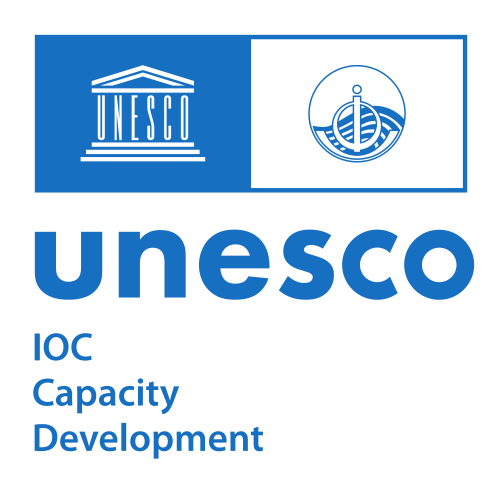In order to determine regional capacity development requirements, a regional reporting of the results is presented here for the the following regions: AFRICA, LAC, WESTPAC, P-SIDS and Others. Even though most of the P-SIDS countries also belong to WESTPAC, they were grouped separately to be able to look at their specific needs. Unfortunately, due to low responses from P-SIDS group, it was not possible to generate statistically significant findings that were representative of the group. The rest were under ‘Others’.
Due to the relatively small sample sizes care must therefore be taken when interpreting the results and making assumptions based on the data presented. The data presented is based on the weighted average. All the responses were included in the computation to reflect representation of the respondent’s perspectives, including items that were given low rankings. To get a weighted average the number that gave the highest rank (e.g. essential) was multiplied times 5 and added to the number that gave a second highest (e.g. very important) multiplied times 4, and so on, divided by the total responses.
The weighted average were summarized and presented in four tables. The first table includes IOC national focal point group, the second table includes CD focal point group, the 3rd table includes responses from representatives of organization/company/institution and the 4th table includes responses based on personal capacity. In view of the low respondent numbers for the other three groups, it is difficult to draw general findings from the results, with the last group on personal capacity having more significant respondent numbers (except for P-SIDS).
The comparison of the four tables give an overview on the rankings similar or diverted amongst the four groups. It offers some insights on the perspectives not only of the leadership (focal points) but also those who are from practitioners’ groups belonging in other institutions/organizations/company and attempt to identify any disconnect between these groups. The highest ranked are highlighted in darkest green, while the lowest are highlighted in red.
Results Highlights: Top CD Needs
What can be logically drawn from the analysis is the strong expression of a need for capacity enhancement all across the board, as indicated by the few scores below 4.0.
In terms of the most critical capacity development needs to build ocean science capacity, the top ranked needs across regions and groups include funding and investment followed by ocean observation equipment (buoys, AUVs, tide-gauges etc.. This is shared with Africa, among both the IOC focal points and CD focal points groups. For representative group, international partnerships and membership/involvement in international ocean research were also considered top CD needs. On the other hand, IOC focal points and CD focal points from LAC ranked increased awareness, ocean literacy and public outreach as well as higher power computing as higher CD needs. This high ranking for higher power computing was in stark contrast with its ranking as one of the least needs by the representative and personal groups in LAC.
In terms of developing capacity in human resources, the establishment of an internship/fellowship programme was considered the most important, followed by increased collaboration with UNESCO Chairs and IOC across regions. The representatives and personal groups ranked advanced professional development training courses and continuous professional development as top CD needs.
In terms of increased access to physical infrastructure, organizing shared access to regional scientific research infrastructure was considered the most important needs across regions and groups. While these were shared with IOC focal point and CD focal point groups, the personal and representative groups across regions ranked different items as top CD needs which were ‘training on the use and maintenance of physical infrastructure and equipment’, followed by ‘access to best practices on the use and maintenance of physical infrastructure and equipment.’
In terms of strengthened coordination with global, regional or sub-regional IOC communities and local networks, reinforced budgeting of regional sub-commissions
and establishing an effective coordination and communication mechanism were ranked highest, although with lower average compared to other scores from other sets of CD needs. The average from responses of focal points from LAC in this section was relatively lower compared to average of other needs, mostly under 3.50.
In terms of development of ocean research policies in support of sustainable development, most items consistently ranked high across regions and groups, with emphasis on sharing information on existing ocean research priorities among government and other organizations. Only one item, assistance with the development of national marine science management, received lower than 3.50 from IOC focal points group in LAC region.
In terms of increasing visibility and awareness of ocean research, all items received high scores, with strong agreement on support for communicating ocean science research to policy makers as top CD needs across all regions and groups.
In terms of mobilizing sustained (long-term) resources, financial resource mobilization was considered more important than increase in in-kind support based on high ranking from across regions and groups.
In the context of the Ocean Decade Challenges where capacity development needs were identified greatest, Challenge 7: Ensure a sustainable ocean observing system across all ocean basins that delivers accessible, timely, and actionable data and information to all users was consistently ranked as most relevant across regions and groups, followed by Challenge 4: Generate knowledge, support innovation, and develop solutions for equitable and sustainable development of the ocean economy under changing environmental, social and climate conditions.
In the context of the Ocean Decade objectives, all the objectives were considered highly relevant, most especially Objective 3: Increase the use of ocean knowledge and understanding, and develop capacity to contribute to sustainable development solutions which was ranked consistently as greatest capacity development needs across regions and groups.
